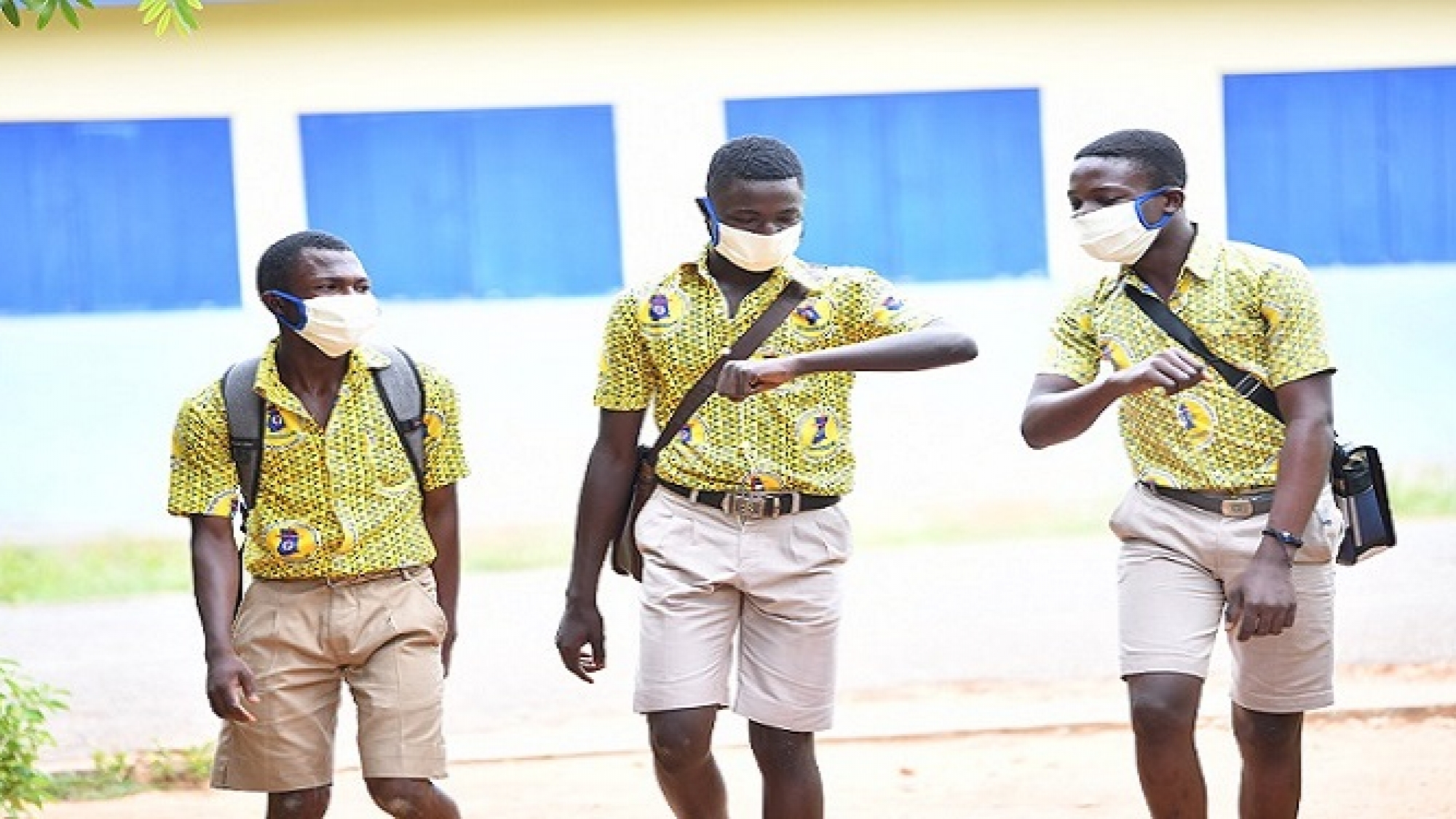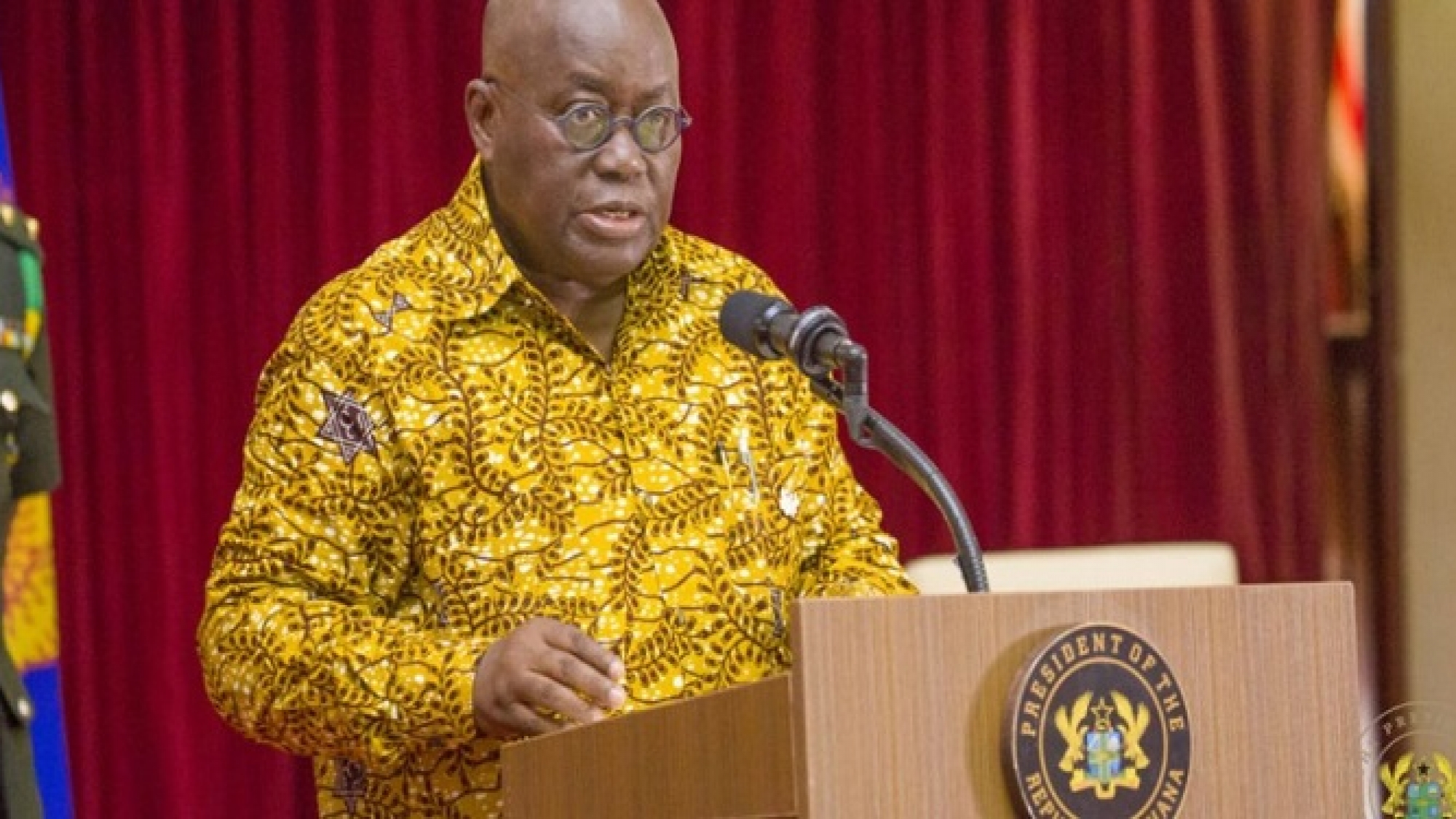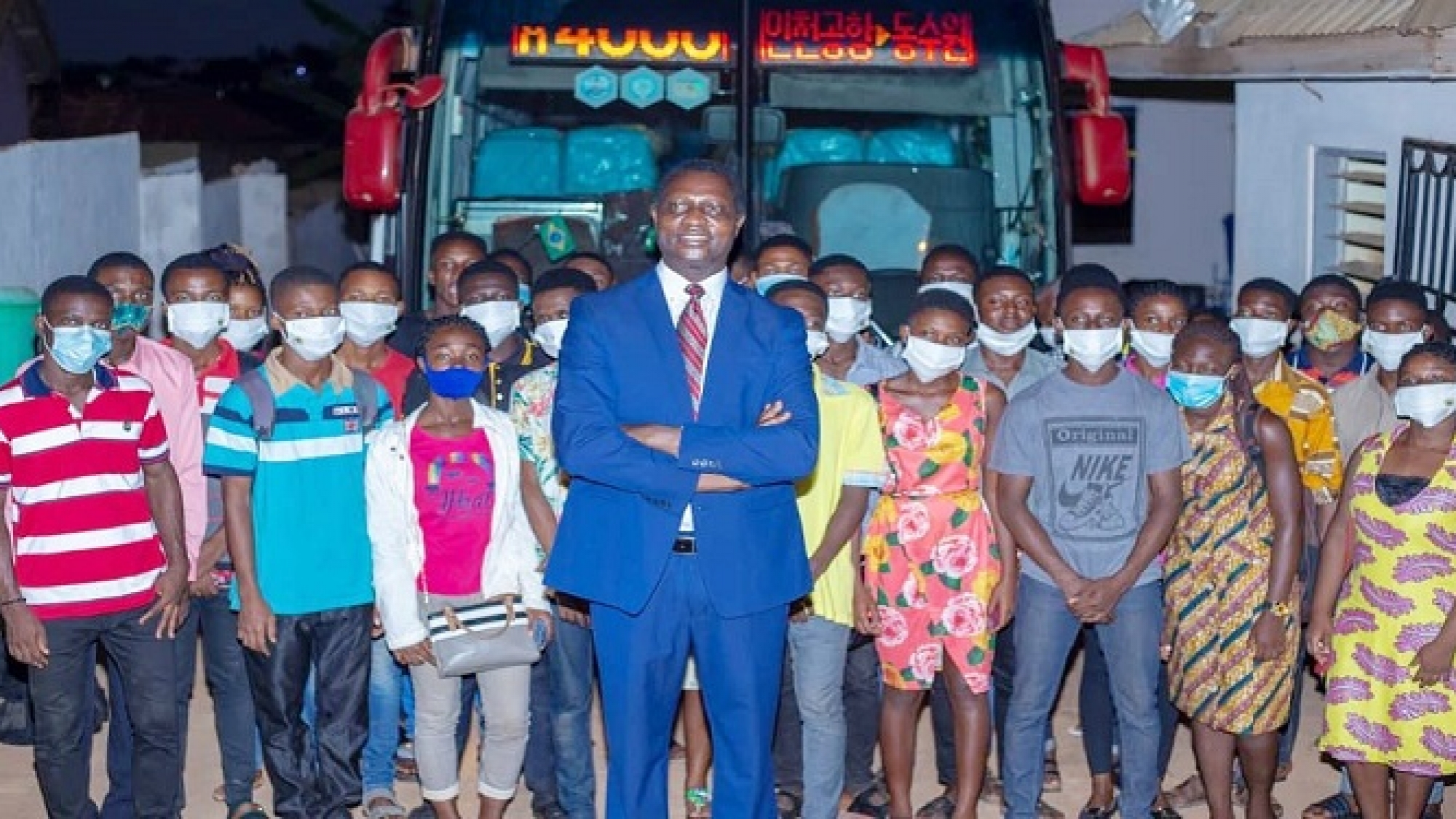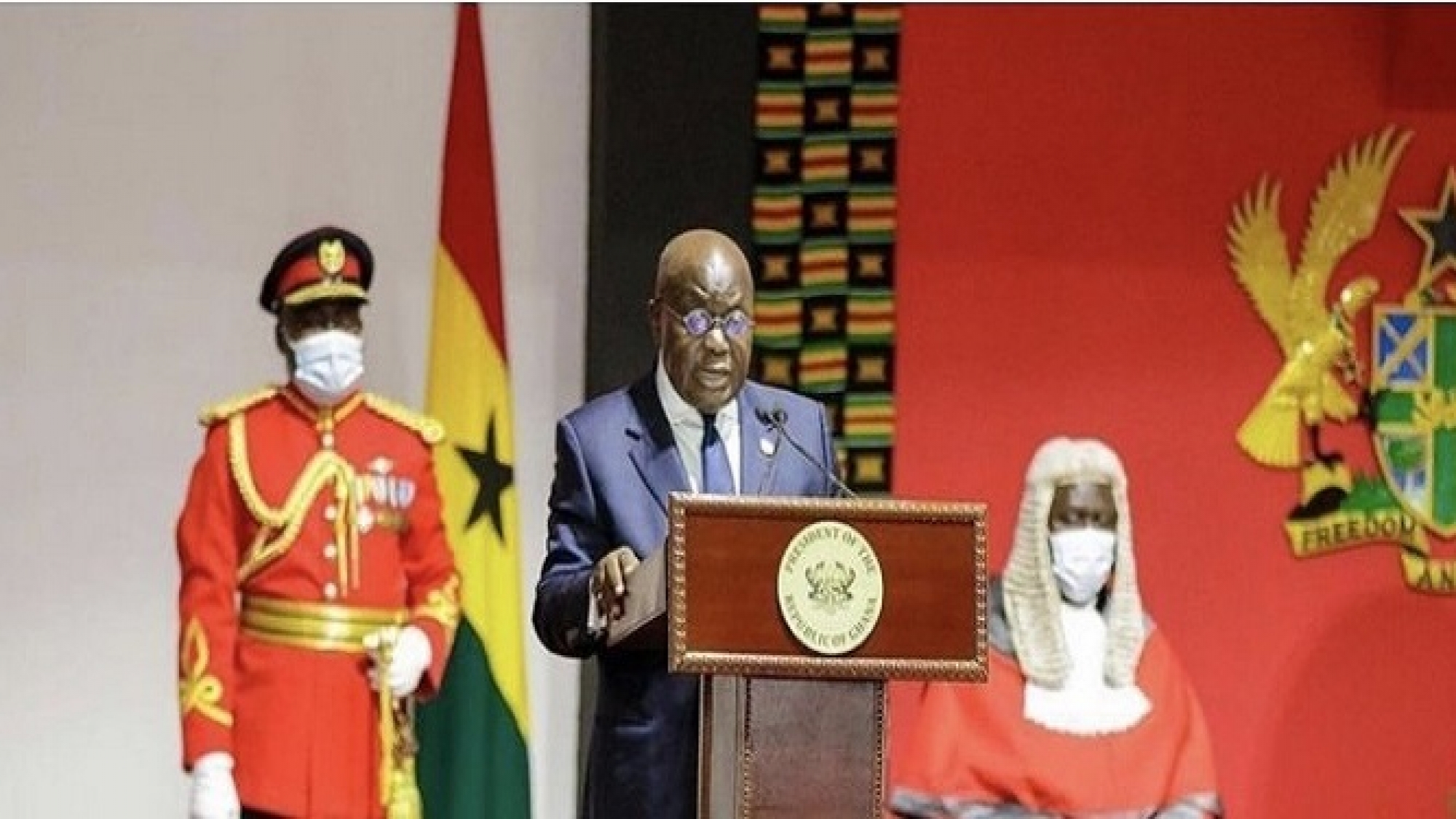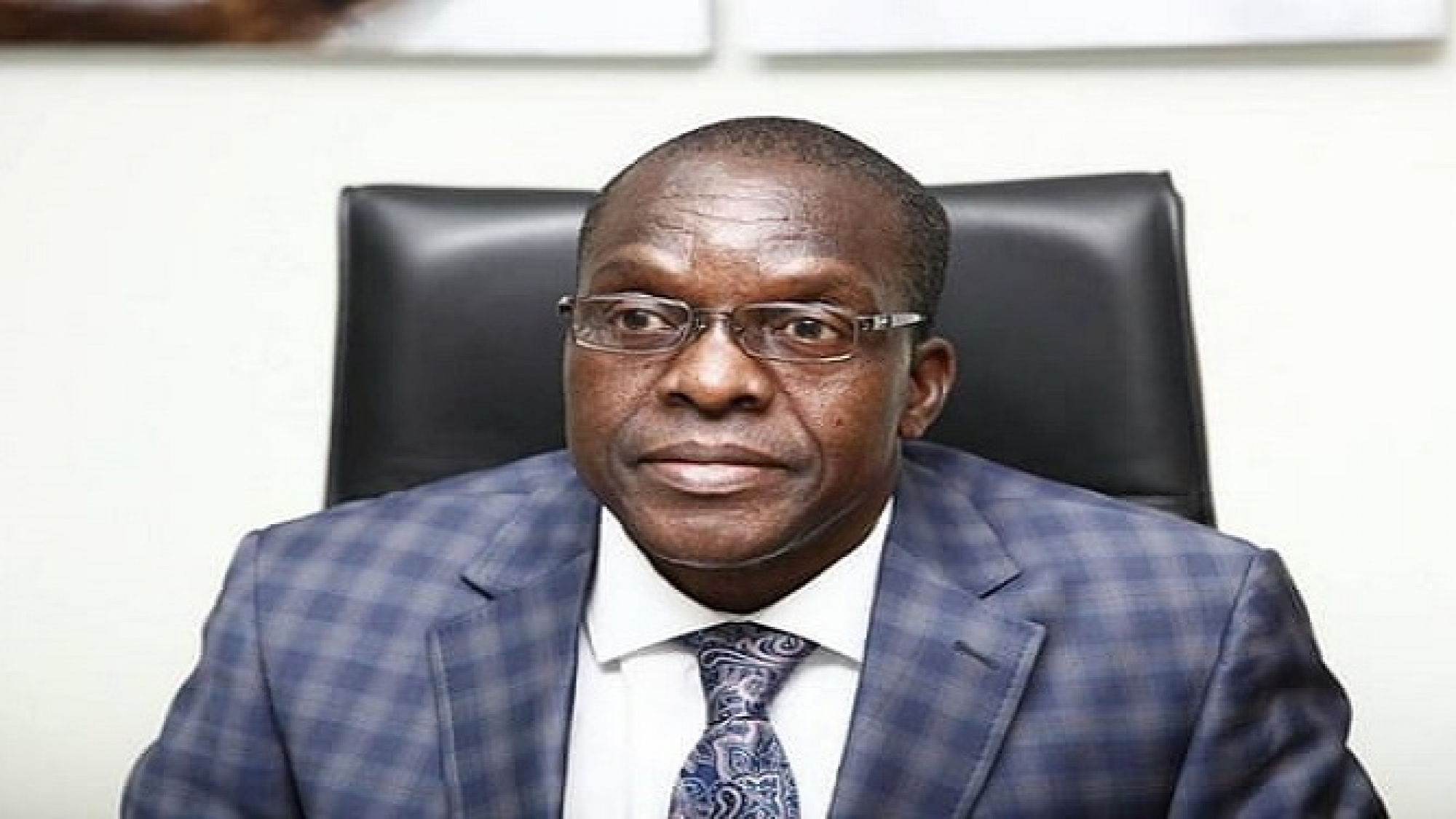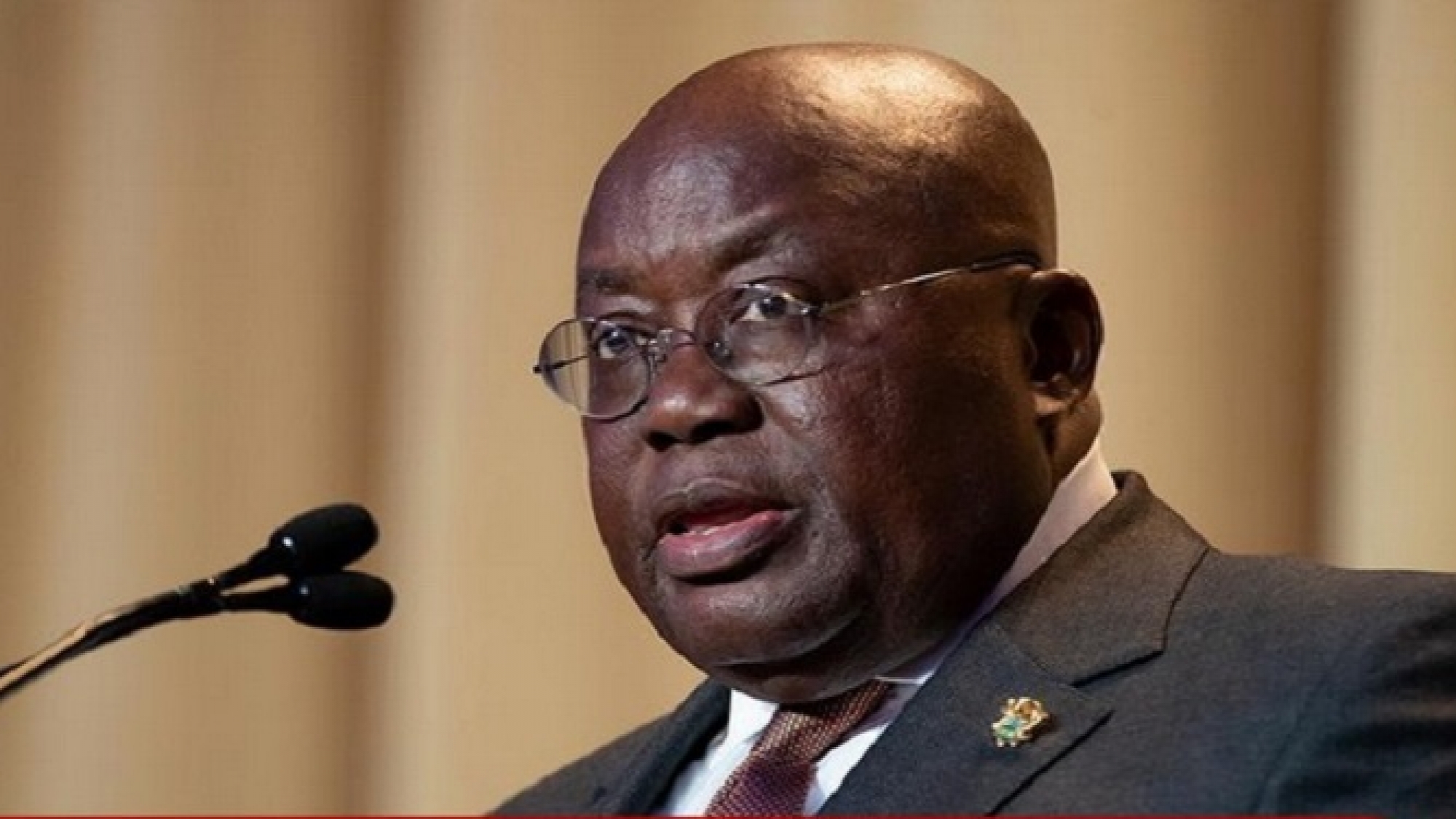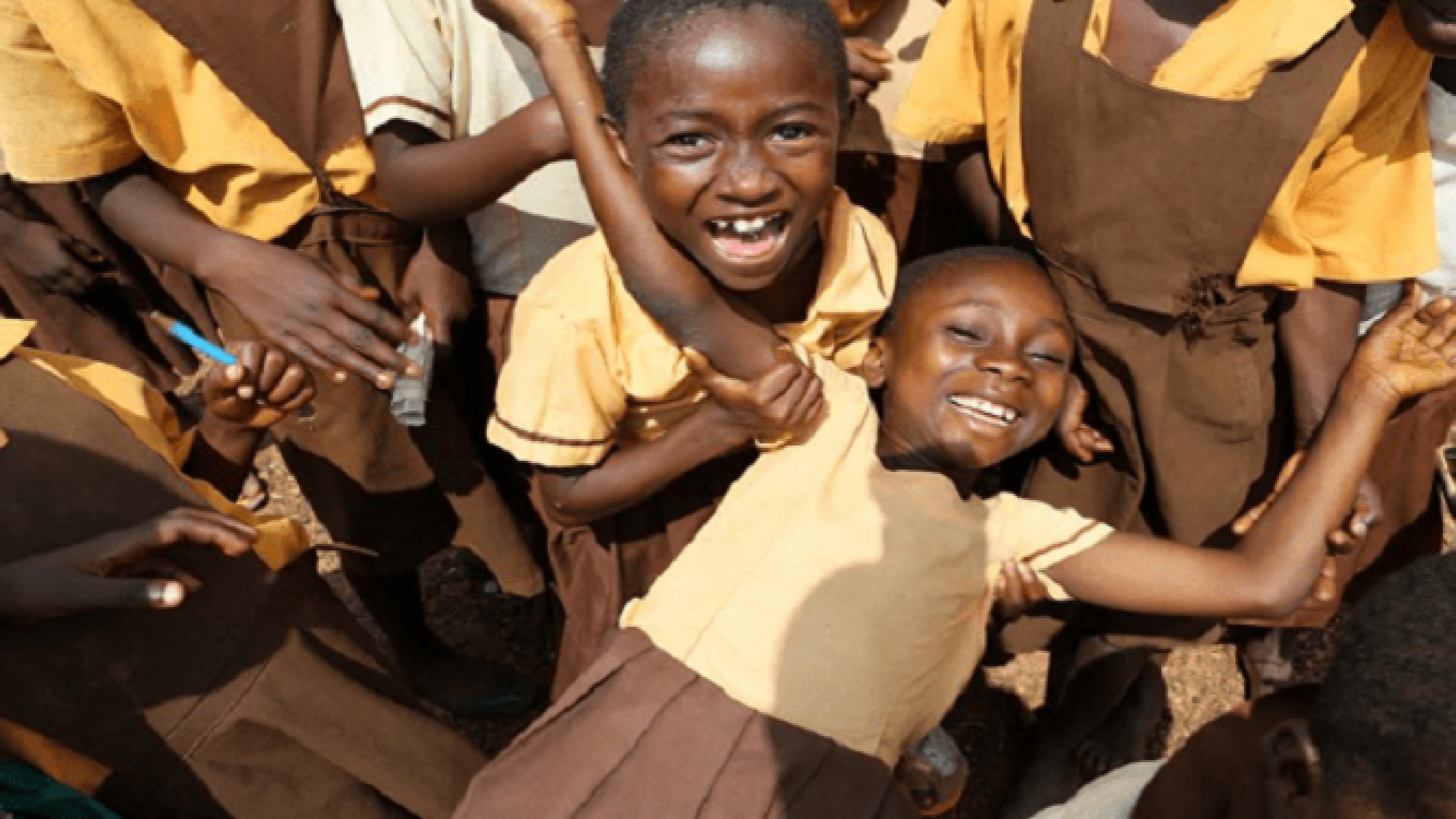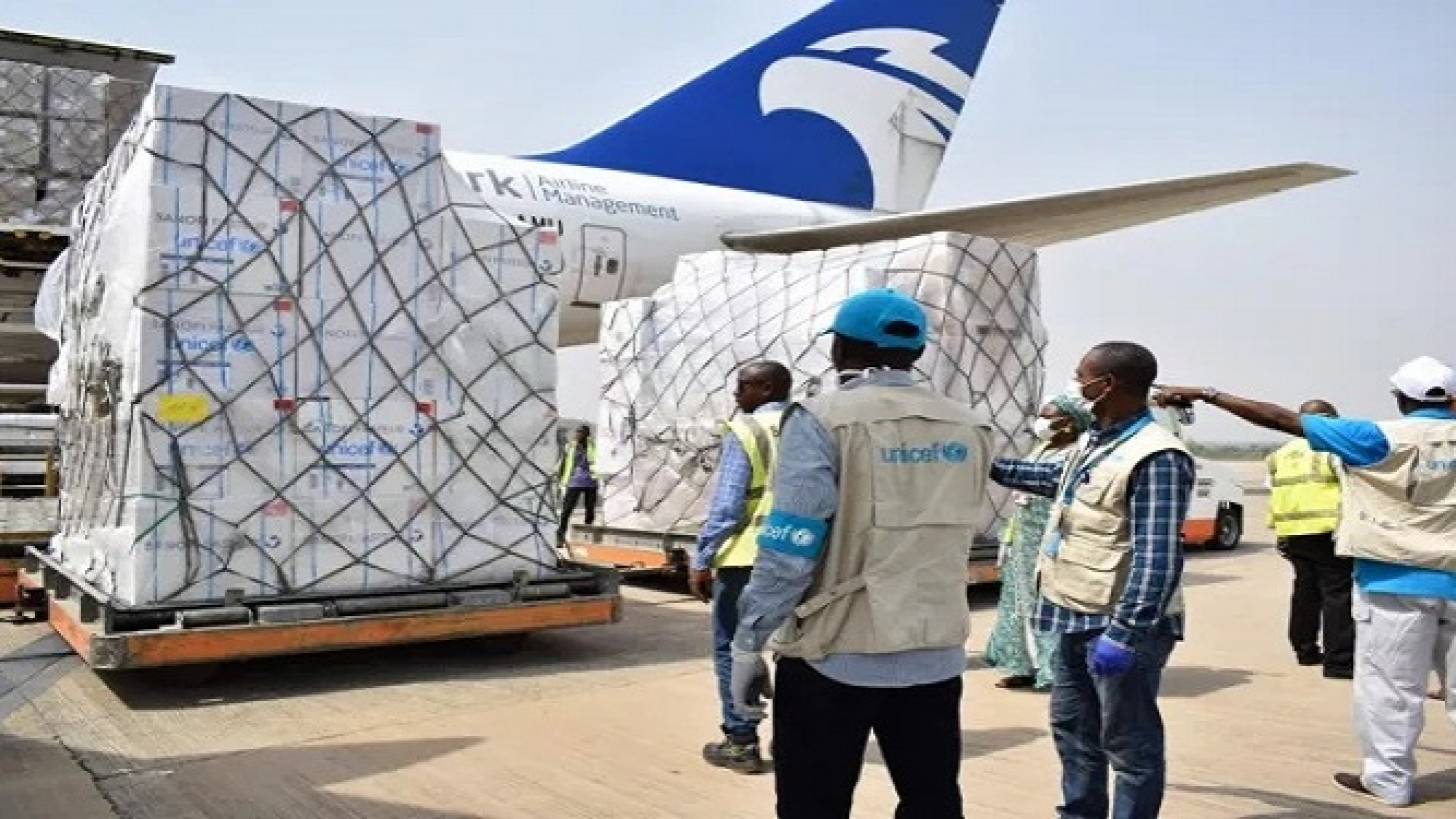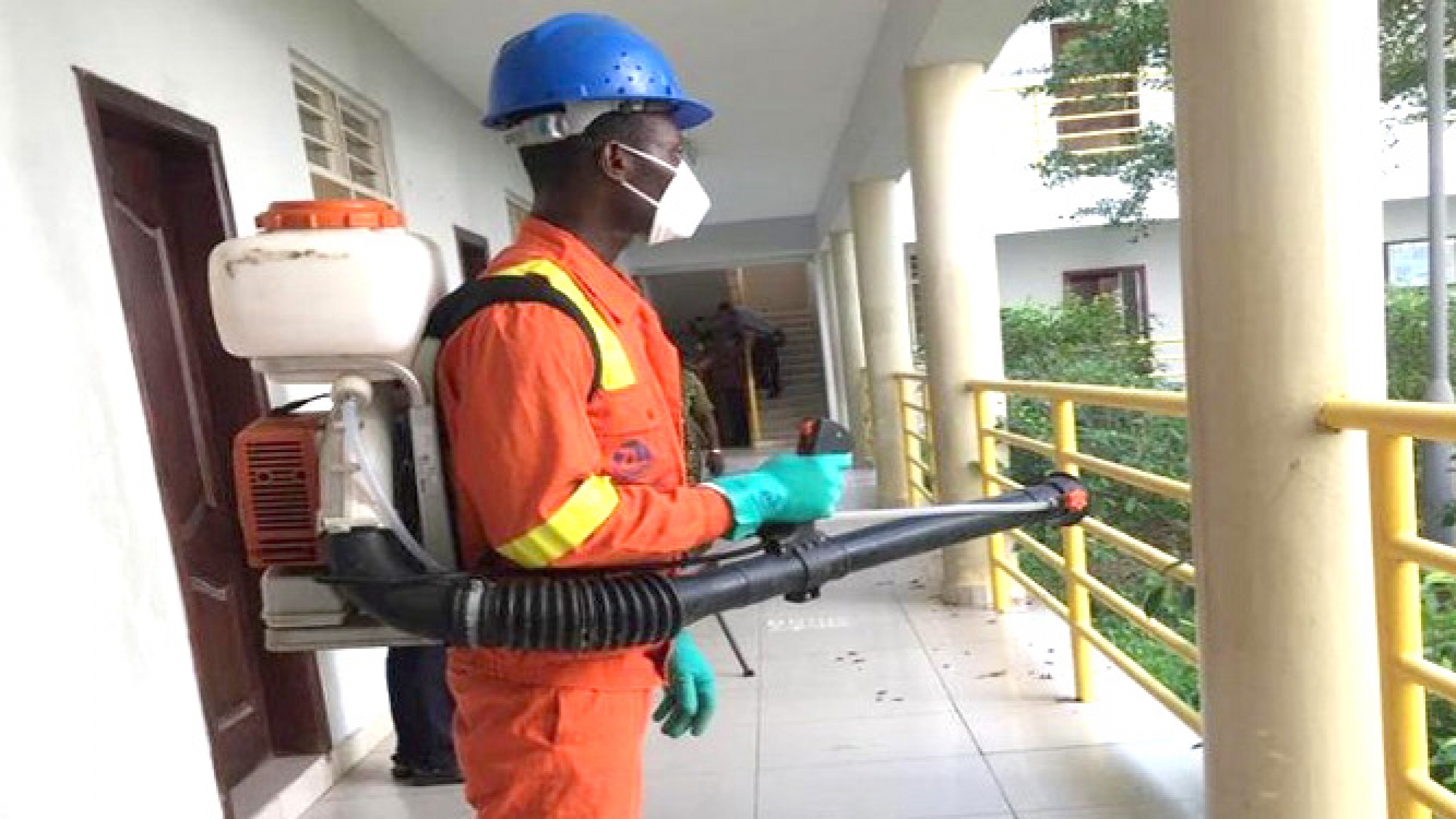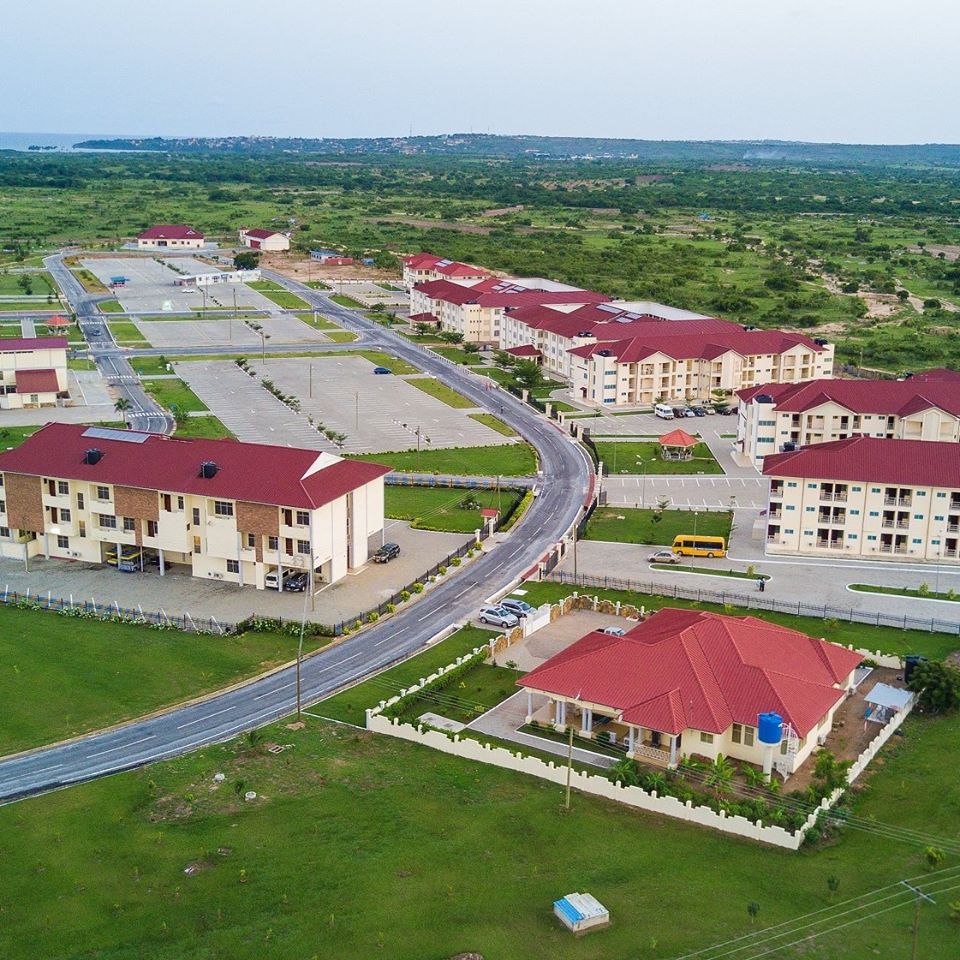Message On The State Of The Nation On The Dissolution Of The 7th Parliament By The President Of The Republic, Nana Addo Dankwa Akufo-Addo, On Tuesday, 5th January 2020, At Parliament House, Accra.
Mr Speaker,
Before I proceed, I will beg the indulgence of the House to join me in standing up and observing a minute’s silence in memory of the dynamic 1st President of the 4th Republic, His Excellency Jerry John Rawlings, who, sadly, passed away on 12th November 2020. May his soul rest in perfect peace in the bosom of the Lord until the Last Day of the Resurrection when we shall all meet again. Amen!
As demanded by the Constitution, I have come before this august House to deliver, on the dissolution of this 7th Parliament, a Message on the State of the Nation, which is, essentially, an account of my stewardship as President of the Republic these past four years.
On 7th December 2016, the good people of Ghana went to the polls and honoured me and my party, the New Patriotic Party, by voting us into office. We were given a clear and unequivocal mandate, with decisive victories in the presidential and parliamentary elections, and by the grace of the Almighty, the Vice President, Alhaji Dr Mahamudu Bawumia, and I were sworn into office on January 7, 2017.
We had presented to the people of Ghana, during the campaign, a clear plan of how we intended to grow and transform the economy.
Mr Speaker, we thought we knew that we would face a difficult situation, but, when we took a good look, we were still taken aback by the state of the economy we inherited – an economy with severe macroeconomic instability, weak growth, a troubling financial sector, low investor confidence, and significant structural bottlenecks. The basic facts of our unhappy inheritance are well-documented – 15.4% rate of inflation; a 9.3% fiscal deficit; 32% rate of interest; a 3.4% rate of GDP growth, the lowest in two decades – all under an IMF-sponsored bailout programme. We set to work quickly, and, I am glad to say that, we have been able to stabilize the economy, exit satisfactorily the IMF programme, and restore confidence in the economy.
At the end of 2019, the economy was characterised by strong growth in response to implementation of government flagship programmes, single digit inflation, reduced fiscal deficits with three consecutive years of primary surpluses, relatively stable exchange rate, significant improvement in the current account with three consecutive years of trade surpluses, strong foreign exchange reserve buffers, and markedly reduced lending rates.
The global pandemic of COVID-19 threatened to derail the progress chalked over the first three (3) years of my administration. Its impact has led to the revision in GDP growth for 2020, from 6.8% to 0.9%, and later to 1.9% to reflect significant slowdown in economic activities as a consequence of the effects of COVID-19 on lives and livelihoods. The proactive decisions taken by government to fight the pandemic, as well as revitalise and transform the economy with the one hundred-billion-cedi Ghana CARES ‘Obaatampa’ Programme, anchors bright prospects for the medium-term.
Government will continue to implement prudent fiscal measures to quicken the pace of fiscal consolidation, and, in March this year, the Minister for Finance will come to this august House to provide further details on the measures to be taken to restore our country back to the path of economic recovery.
Mr. Speaker, Government, in four years, has recorded a number of significant milestones in our quest to formalise and modernise the Ghanaian economy. We believe it is the fairest and fastest way to achieve our goals. The National Identity Card rollout, the National Digital Property Addressing System, the interoperability of mobile money transactions, the introduction of the paperless operations at the port, e-business registration system, and access to digital financial services are all part of the drive to formalise our economy, and enhance its productivity.
For years, there had been unhappiness and, sometimes, agitation on the subject of the geographic delineation of regions in the country. In the particular case of what was to become the Oti region, their demand for a new region stretched back to more than sixty (60) years. We decided that we needed to resolve these matters to be able to bring governance nearer to the people.
The constitutional process for the creation of new regions was put in place, and, after the petitions and stakeholder consultations, the people in the identified areas had the opportunity to vote in historic referenda. There were overwhelming approvals for the “Yes” vote in the referenda held in forty-seven (47) districts, across four existing regions. This led to the creation of six (6) new regions, and we now have sixteen (16) instead of the ten (10) regions that existed at the start of my administration.
Four years ago, it sounded recklessly optimistic, but Free SHS and Free TVET are now entrenched parts of our educational setup. In a few years’ time, we can guarantee that the basic education for the workforce in our country would be at the secondary level. It is a transformational step we have taken, which should quicken the pace of development all round, and give us confidence in our future.
In 2017, it appeared to some like the same old refrain when we said farmers and agriculture would get the highest priority. But we can see the difference it makes when a government treats farmers with respect, and spends resources and expertise on agriculture.
We have seen the dramatic turnaround of our agricultural fortunes, due to the progressive policies that have improved the living standards of farmers in the country. The excellently executed policy for Planting for Food and Jobs has laid the foundation for the agricultural transformation of our country. We are able to say that our country is now a net exporter of food, and we no longer have to import basic foods like plantain and tomatoes.
Mr. Speaker, Ghana rice is the preferred choice in an increasing number of our homes, as the growing, processing and packaging of rice become a more established and attractive industry.
During this COVID crisis, we have, mercifully, been spared the spectre of food shortages. On the contrary, thanks to Planting for Food and Jobs, food has been in abundance in our markets across the country.
Throughout the ages, food processing has provided the takeoff point for the industrialisation of many nations, and we are taking that lesson to heart as we pursue the goal to industrialise, modernise and create jobs for the young people of our nation.
The One-District-One-Factory programme is part of the anchor on which we are building the comprehensive industrialization of our country. Much of the work has now been done to put in place the framework for the rapid implementation of projects. The factories, that are currently in place and in production, reflect the underlying principle of the programme, which is the equitable distribution of development projects around the country. The prospects of our becoming the automobile hub in West Africa are growing stronger every day, with the investments being made in the country by global manufacturing giants in the automobile industry.
Probably, the most difficult problem the government met on coming into office was the state of the banking and financial sector. Many of our banks were in distress, and had been kept on unsustainable and artificial life support by the Central Bank. The supervisory agencies were, unfortunately, not performing their duties, and the governance and management structures of many of the banks were clearly not adequate.
If truth be told, many of the finance houses were running what can only be called glorified ponzi schemes, and had lured many depositors into these schemes. We were in a desperate situation, and urgent, radical measures had to be taken to prevent the collapse of the entire financial and banking sector.
The Bank of Ghana, under new leadership, intervened, and has restored sanity to the sector, and, in the process, we have saved the banks involved and 4.6 million depositors’ funds. The government has had to find some twenty-one billion cedis (GH¢21 billion) to fund the cleaning up exercise. This exercise has enabled a more robust financial and banking services sector to emerge, the better to finance the rapid development of our nation.
Mr. Speaker, there are painful lessons that we all have to imbibe from this debacle.
There is no question but that many people got attracted to the unsustainable high interest rates that some of these financial houses were offering. In all financial dealings, we have to accept what the experts tell us that, whenever whatever on offer sounds too good to be true, it invariably ends up being untrue and unsustainable. Government is committed to paying all validated claims, and I expect the process to be completed soon after the courts grant the liquidation orders for the remaining failed fund management companies.
Mr Speaker, Government, since my assumption of office, has increased annually the budgetary allocations to all the accountability institutions of State, including Parliament and the Judiciary, with the latter, for example, being the beneficiary of ninety (90) newly constructed courts across the country. Our security agencies have been equipped with more personnel and the requisite tools needed to maintain law and order, as well as protect the territorial integrity of our borders. At the 81st Cabinet Meeting, the decision was taken to exclude the security services, i.e., the Police Service, Immigration Service, Fire Service, Prisons Service, as well as other security and intelligence agencies, just like the Armed Forces, from the unification of pension schemes. In other words, all the security agencies will continue to enjoy benefits under the CAP 30 Pension Scheme, and the appropriate legal regime will be put in place by the Ministry of Employment and Labour Relations to ensure this.
Mr. Speaker, I am pleased to report that our undertaking to bring peace to Dagbon has been successful. For decades, this ancient and proud kingdom had been bedeviled with conflict. Since 2002, when a fresh eruption of the conflict ended in the tragic killing of my friend, the Ya Na Yakubu Andani, Dagbon had become designated as a troubled land. A generation of young people had grown up knowing nothing else but Dagbon as a troubled land where there was no peace, and public officials hesitated to accept postings there.
On assumption of office, we decided to tackle the problem with renewed vigour. Luckily for all of us, the three eminent chiefs who had been at the helm of the peace process, since 2002, did not relent on their commitment or enthusiasm for the cause of peace. Our efforts bore fruit, a historic settlement was reached, and peace has been restored to Dagbon. I recall the joy and deep satisfaction that I felt on the day that I attended, in Yendi, the enskinment of the new, dignified Ya Na, Mahama Abukari II, and I carry my honourary title of Dagbon Malti Naa Abudani, which he graciously bestowed on me, with pride.
I admit freely that it was one of the highlights of the past four years for me as President of the Republic. I was happy not just because a long, running problem had finally been resolved, but also because I know that the development and modernisation of our country that we all desire can only happen when there is peace and unity in Ghana.
I express the deepest gratitude of the nation to the many people who worked so hard to give Dagbon the opportunity for its people to lead normal lives again. I pay homage especially to the three eminent chiefs who led the process, the redoubtable Asantehene, Otumfuo Osei Tutu II, the Overlord of Mamprugu, the Nayiri, Naa Bohugu Abdulai Mahami Sheriga, and the Overlord of the Gonja State, the Yagbonwura, Tuntumba Boresa Sulemana Jakpa, and I congratulate the Dagbon people themselves for deciding to embrace peace. We pray that we learn all the hard lessons and reject the use of violence to resolve the problems that will come up in our lives.
Mr Speaker, since I am on the subject of highlights, this might be the appropriate place to recall the Year of Return. 2019 marked the 400th anniversary of the start of the Trans-Atlantic Slave Trade, and we declared the Year of Return as a mark of solidarity with the descendants of the millions of Africans that were taken from our shores into the Americas and Caribbean.
Black people in the African Diaspora, those in the Americas and Caribbean, and, indeed, in the rest of the world, took to their hearts our invitation, and came in their numbers to Ghana. Our country throbbed to the sound of the returnees, and the joy of finding a welcome after the trauma of four hundred (400) years of the horror of the slave trade. The young people of the world came to Ghana, and it was a good experience for us all to play host to the world.
We entered the year 2020 full of hope and the determination to build on the successes and joy of 2019, which ended on such a high note. Then the unexpected struck, and our world was literally changed overnight with the arrival of the COVID-19 pandemic. This pandemic has shaken economies and public health systems the world over, and brought even some of the wealthiest and most developed countries to their knees.
Over here in Ghana, our first priority in fighting the pandemic has been, and will continue to be, the health and safety of our citizens. We pioneered lifesaving innovations that the WHO has since sought to replicate elsewhere. Our success, thus far, is a testament to the tireless work of our researchers, scientists, advisors, public health managers, frontline healthcare workers, hospital staff, contact tracers, and so many others who have dedicated themselves to the fight to keep Ghanaians safe. Our nation is deeply indebted to them.
Prior to the onset of the pandemic on our shores, Government had succeeded in restoring the highly-indebted National Health Insurance Scheme we inherited in January 2017 back to rude health. Some ninety-five thousand health workers were recruited into the public health sector, and we ensured that each constituency now has a well-equipped, functioning ambulance. COVID-19 has presented us with the opportunity to resolve some long-standing problems in the health sector. We have taken steps to resolve the problem of infrastructure deficit in the healthcare system once and for all, with the inception of Agenda 111 and the start of the building of hospitals around the country. We are upgrading district hospitals where they exist and establishing new ones where they do not. We are also investing in our next generation of Ghanaian doctors and nurses.
Throughout the period, I have tried to keep the Ghanaian people informed with regular broadcasts, so we all know what is going on. This has led to the phrase “Fellow Ghanaians” attaining a new status, as Ghanaians brought their famed ingenuity to find relief in the doom of the devastation being wreaked by the pandemic.
Our artists and designers have brought their expertise to bring unexpected relief. We are wearing the “Fellow Ghanaians” and “This Too Shall Pass” fabric with pride and the knowledge that we are able to find something positive out of the darkest events.
I have had a team of dedicated Ghanaian professionals, formed into a Taskforce, who have been advising me throughout the crisis, and I am extremely appreciative of them and all those who have risen to the occasion and helped us cope with the crisis. I am using this opportunity to again remind all of us that the pandemic is still with us, and we have to maintain the protocols to keep us safe.
Mr. Speaker, these past four years, it has been a joy and a great privilege to serve our nation as President. There were many moments of great satisfaction, some moments of frustration, and some moments of disappointment. That is not saying anything special, that is life, and I did not expect that everything that Government tries to do would have universal acceptance.
There is one subject about which I believe we, the people, need to have an open conversation, and that is galamsey. Should we allow or should we not allow galamsey, the illegal mining that leads to the pollution of our water bodies and the devastation of our landscape? As I have said often, the Almighty having blessed us with considerable deposits of precious minerals, there would always be mining in Ghana.
Indeed, there has always been mining in Ghana. The problem we have is the use of modern technology that leads to the illegal mining methods posing serious dangers to our water bodies and the health of our environment. The pollution of our rivers and water resources has been so acute on occasion that the Ghana Water Company is unable to afford the distilling of water to make for safe drinking. We have to talk about galamsey. We, who are leaders, owe it to the country to take the subject out of the party-political arena, and have an honest conversation about this menace to our future.
Mr. Speaker, by dint of hard work, we have ensured that, presently, our country’s reputation amongst the comity of nations is high. For the first time in our history, Ghana has been honoured by her peers with the privilege of playing host to a pan-African institution – the Secretariat of the African Continental Free Trade Area (AfCFTA), one of the most momentous developments in the modern history of our continent. I have also been honoured to follow in the footsteps of my predecessor Presidents – specifically, their Excellencies Jerry John Rawlings, John Agyekum Kufuor, and John Dramani Mahama – with my appointment as Chairperson of the Authority of Heads of State and Government of the Economic Community of West African States (ECOWAS). I am aware of the enormity of the task ahead, and I assure the Community that I will discharge my duties to the best of my abilities.
Mr. Speaker, I would like to say a special thank you to the members of this august House, to the members of this Seventh Parliament in our Fourth Republic.
I speak as someone who has served three terms in this House, and I can safely say that this Seventh Parliament has been the busiest ever, and, arguably the most productive, in the history of our country. You have passed almost fifty (50) pieces of legislative instruments. The Acts have been wide ranging in scope and reach. We finally have the Right to Information Act, we have a Special Prosecutor Act, the Ghana Integrated Aluminum Development Corporation Act, the Ghana Integrated Iron and Steel Development Act, the Witness Protection Act, the Lands Act, the historic Private Members Bill, and lots more. In many ways you have helped transform Ghana, and you have every right, collectively, to be proud of the work you have done.
Mr. Speaker, the next Parliament is not going to be anything like this one that ends today. I do not suggest that the House might not be as busy, but the sitting arrangements, the source and decibel levels of sound from the House would certainly be different.
The good people of Ghana have spoken and given Parliament an almost equal strength on both sides of the House; we have no choice but to work with the consequences of the desires of the people.
The House would have to be more accommodating of each other’s views, and, probably, devise new ways of conducting its affairs.
I am thankful to the Ghanaian people and to the Almighty that I have been given a clear mandate to govern the country for four more years, and, thereby, given the opportunity to complete tasks, consolidate some of the far-reaching measures we have introduced, and initiate further changes and adjustments to policies and practices.
The Constitution demands that we go to the people after four years to ask for a mandate, and we must listen to the voice of the people. I said during the election campaign, and it is my firm and passionate view, that I should only be President in a fairly conducted election, which I believe, in all sincerity, the election of 7th December was.
I recognise that my main opponent in the election, former President John Mahama, has gone to the Supreme Court to seek its intervention, and grant reliefs that he believes were compromised in the conduct of the elections. It is good for the nation that, in the end, he chose the legal path, instead of the pockets of violence that have attended the rejection of the results by his party in the period after the elections. We all have to make a deliberate decision to invest in the rule of law and uphold the integrity of the institutions of state, so that no person or group of persons take the law into their own hands with impunity.
Mr. Speaker, it has been my great pleasure and exceptional privilege these past four years to have served as President of our beloved country. I am grateful to this honourable House for its co-operation in the enterprise to attain our common goal and aspiration of advancing the peace, progress and welfare of the Ghanaian people.
I will see some of you in February, and, those of you who will not be present have my best wishes for the future.
May God bless the Parliament of the 4th Republic, and us all, and may God bless our homeland Ghana, and make her great and strong.
I thank you for your attention.
SOURCE: presidency.gov.gh





